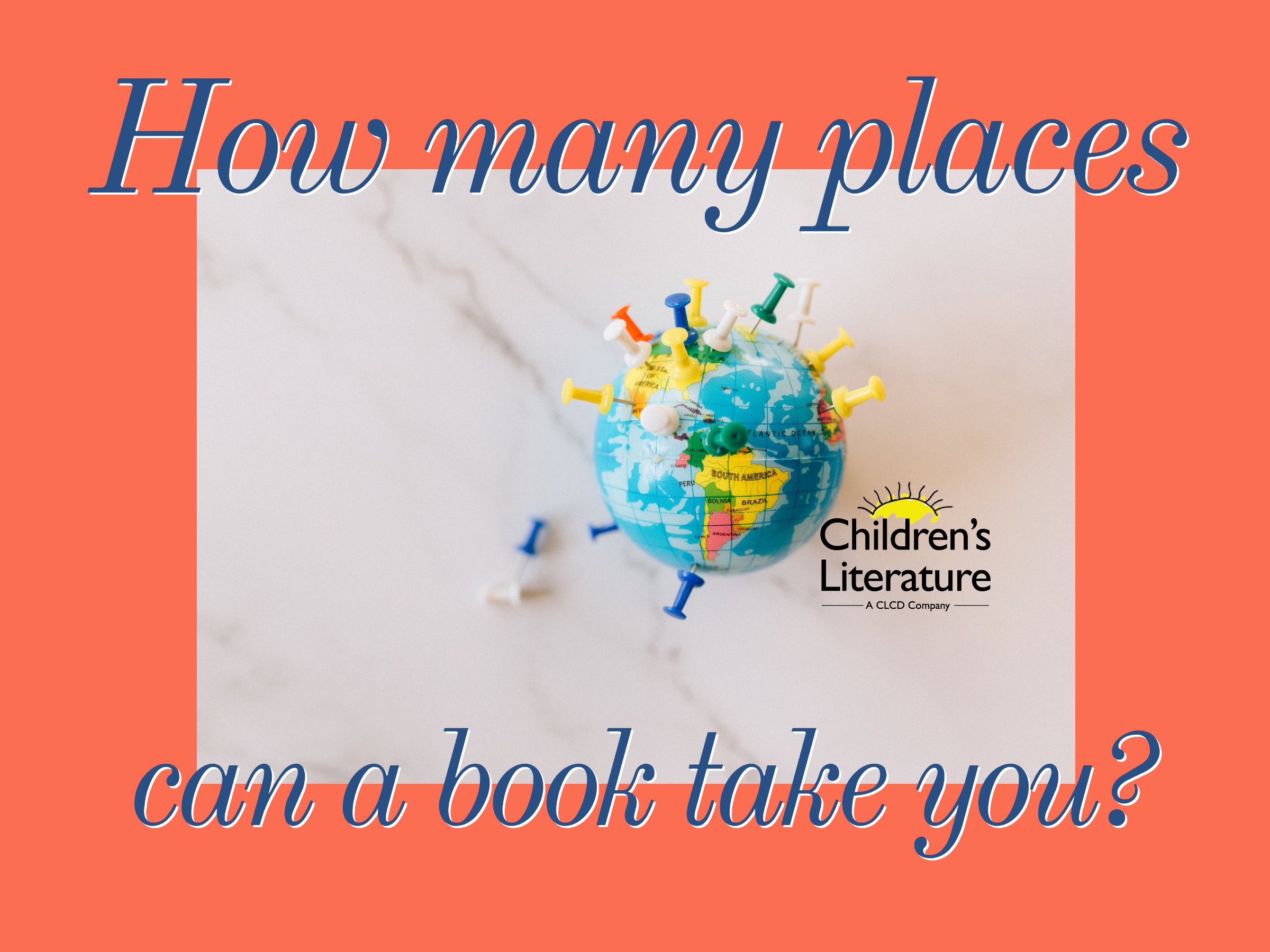
We're going places in this month's ChildrensLit Now newsletter! Enjoy our interview with author Erin Soderberg as she takes us to Sweden in her latest book in The Great Peach Experiment series. Erin also discusses how series books have impacted her life and writing. Take students on a geographic hunt as Children's Literature reviewer and gifted education educator Molly Callender shares fun activities using attention-grabbing books about landmarks and natural wonders. But let's start with our notable reviews, which include a few interesting places of their own.
Subscribe to ChildrensLit Now Newsletter
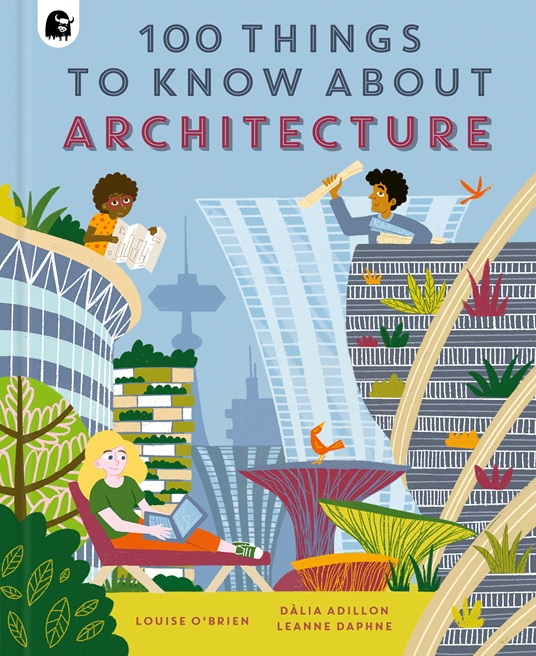
The art and development of architecture are shared and illustrated for children in this informational text. O'Brien's intent to help children better understand architectural history, and the world around them, is successfully taught in this book. From learning about famous architects to discovering buildings throughout the world and being introduced to creative cultural designs, everything you need to know about architecture is in this one-stop reference. It also offers hopeful futuristic designs, such as a sunflower building that has levels that move to collect solar energy, a city built on lilypad structures to adapt to higher seawater levels, and a high-density smart city plan for Paris in 2050. All of these examples serve to show ways that humans may architecturally work with our planet to help it to become a more eco-friendly and healthier place for us to live. This book is definitely filled with pages of information to learn and research several readings over. Included are educational resources, such as a table of contents, reference glossary, author's note, and index. A must-read for the aspiring young architect!
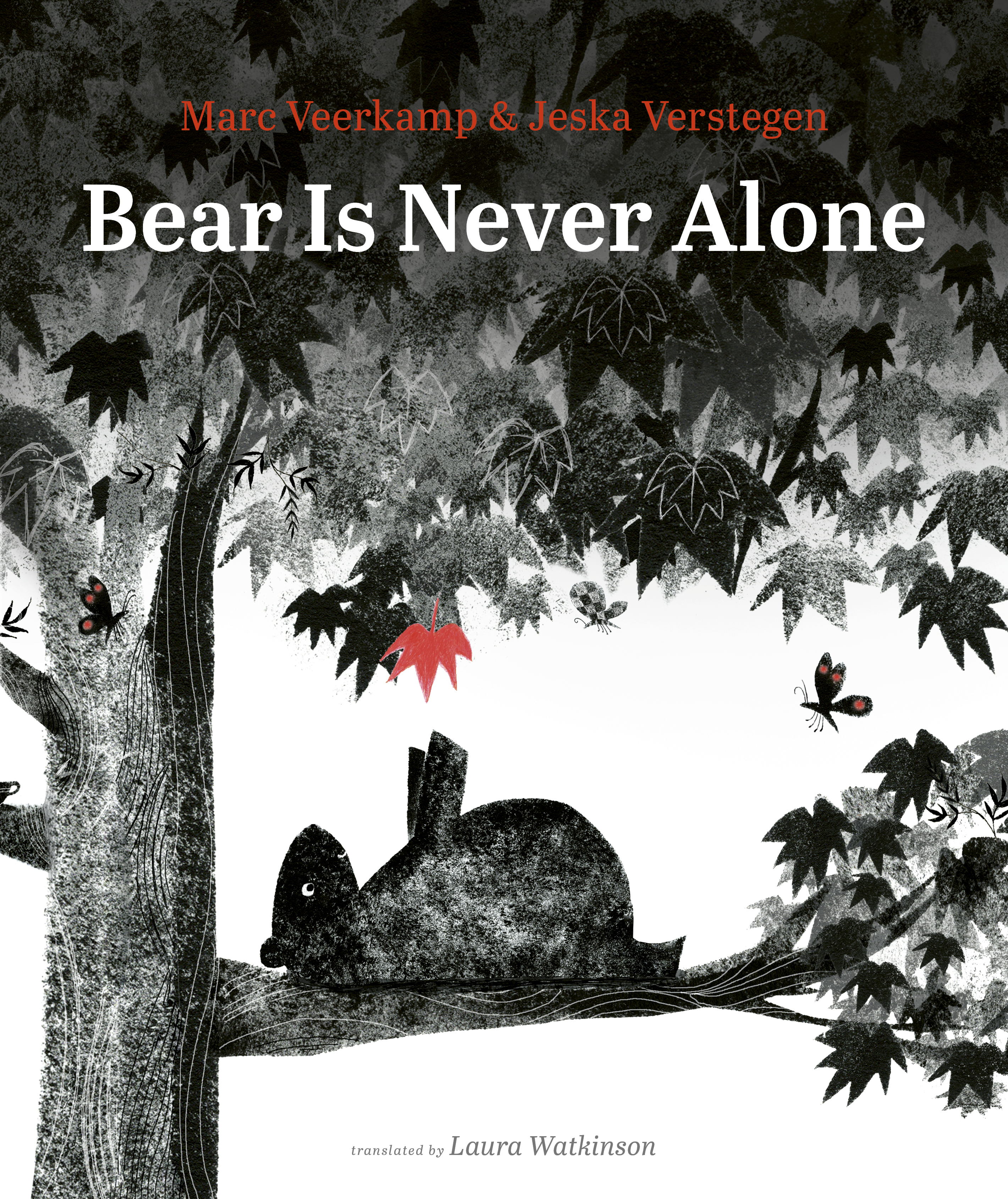
Day in and day out, Bear fills the forest with the melodious sounds of his piano. Even the birds have stopped singing to leave space for Bear's beautiful music. But Bear is tired of playing, and he decides it is time for a break, much to the chagrin of the other forest dwellers. Even as Bear seeks a quiet refuge, he is followed by shouts and chants encouraging him to continue playing. Finally, Bear has enough, and he realizes that being alone is not exactly what he first expected. Translated from the original Dutch, this picture book has a feel that is markedly different from picture books that are published in the United States. The narrative features short lines, ample repetition, and a message of communicating one's true feelings even when those feelings do not coincide with the desires of others. Each page is beautifully balanced, providing adequate space for the text while featuring complementary visuals. Because the text itself is relatively short, readers are permitted to take time to examine the unique and detailed illustrations. These images utilize primarily a grayscale format, featuring shades of black, gray, and white with occasional punctuations of a marigold color. Intriguing textures and shading will encourage readers to carefully explore each image before turning to the next page. Savvy readers will also notice one character with printed text as their coloring, which offers a hint as to how the story will conclude. Though different from many picture books for young readers in its initial appearance, this one encourages positive social-emotional learning and development through the framework of a memorable story. This is a unique addition to library collections for elementary school-aged readers.

Referring to the adventures encountered on a trip, this short board book captures a lot. It asks if readers will journey through fields or walk on busy streets. It wonders about finding the right train or setting sail on a boat. It expands playfully on traveling by air or on wheels. Finally, it wishes the reader a smooth journey and that they allow their dreams to lead them through it. The illustrations capture recognizable images created with bold colors and simple shapes, supporting perception over the course of vision development for the young target audience. The pages are thick and sturdy to live up to use. While their varied sizes and shapes are interesting, fun and make it easy for little hands to grasp and turn through the book, this page feature could be distracting when trying to focus on a page with smaller dimensions than the one behind it. The relatable story of a vacation or trip subtly leads into a metaphor for living and dreaming, such that this simple and engaging board book has the potential to plant the seed towards deep meaning for life.
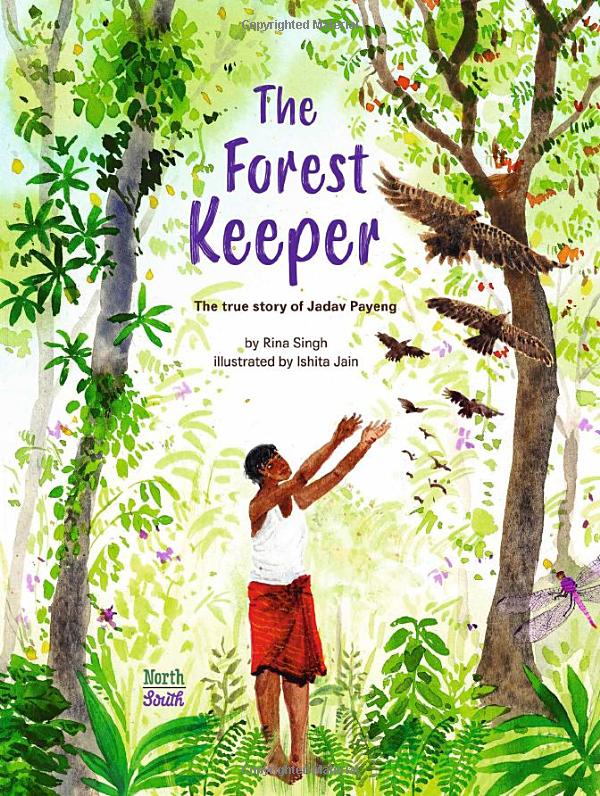
An inspirational biography of Jadav Payeng, an ordinary man who worked unnoticed for decades to realize an extraordinary vision for his community. It tells the true story of how, as a young man, Jadav Molai Payeng saw the devastation that the monsoon wreaked through the Brahmaputra River in Assam, North East India. He decided to do something about it, and his story is a story of perseverance in the face of all odds. When others were defeated by the problem, his small steps, constant care, innovation, and hard, determined work led to the growth of a forest in the most unlikely places. It is also the story of environmental activism and how each person can play their part, however small they think they are. Payeng harnessed the power of the monsoons to grow the forest by dispersing the seeds rather than destroying habitats and the animals and people that rely on them. The illustrations are evocative, detailed, informative, and bright with color. They work with the story to reflect great respect for Payeng's work and give huge scope for discussion and learning. This book is a beautiful and inspirational story to share with children of any age. It will aid in discussions of environmentalism as well as problem-solving and perseverance.
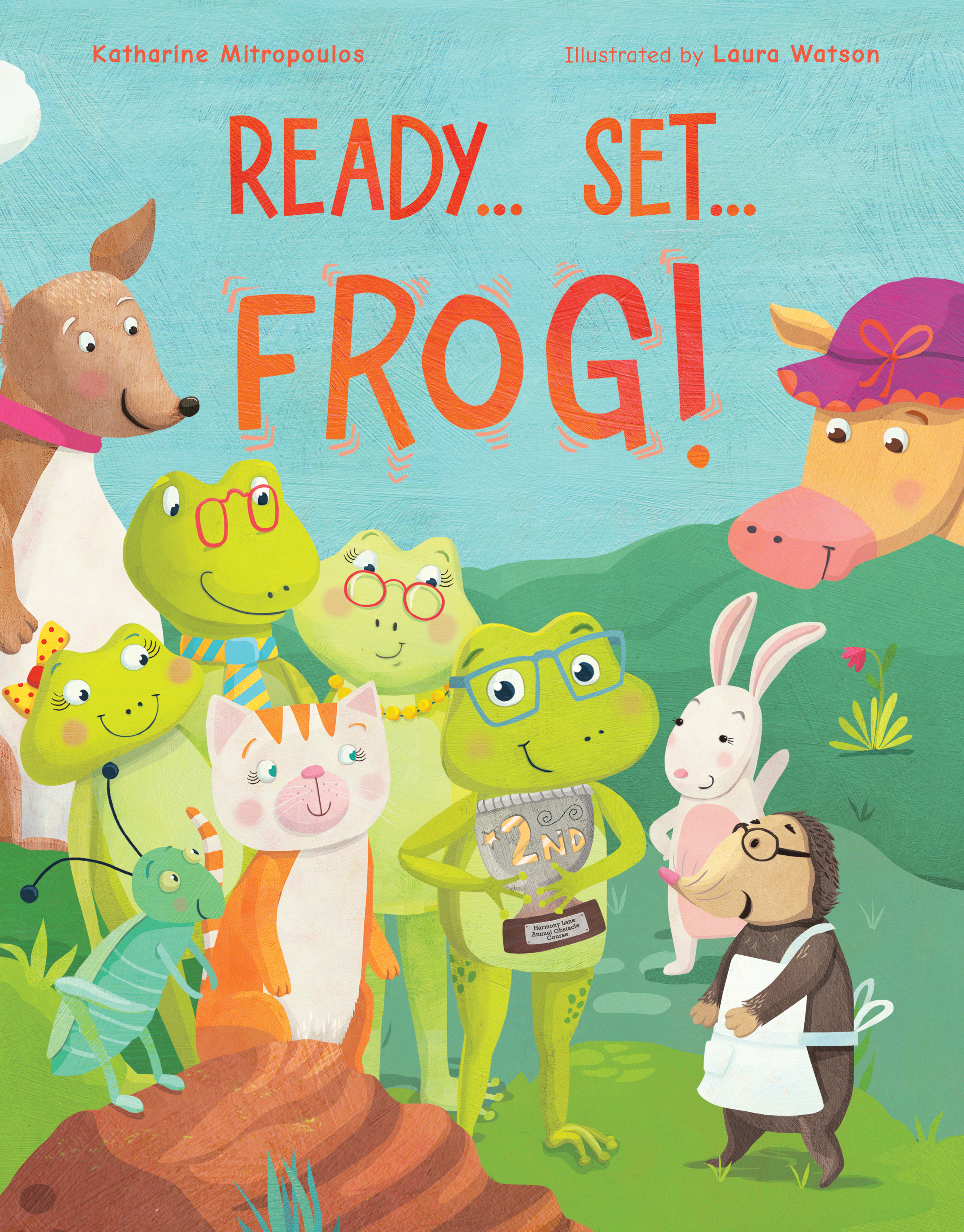
Frogathon Spots—Frog, for short—loves being a part of the Harmony Lane community. His neighbors are good friends, and he enjoys playing games with them. Frog is especially excited when his mother tells him the upcoming neighborhood fair will include his favorite activity, an obstacle course. Frog decides to practice his way to victory! Constructing models that challenge his skills is time-consuming, especially when they topple and need a rebuild. Frog finds that he runs out of time for practice when neighbor Mole asks for help getting an apple from a tree. The next day, his morning practice time goes to helping Giraffe, and Kitten needs assistance in the afternoon. At the dinner table, Frog considers dropping out of the race since he hasn't had time to practice, and his mother reminds him both that the help he's given has drawn on some obstacle-course skills and that it's ok to say no and save time for his own plans, too. The combination of encouragement and skill-building helps Frog face more than just the obstacle course! A second reading of this book focusing on Watson's illustrations shows hints about the supporting characters and there asks cleverly incorporated in the first-page spread. Mitropoulos' text tackles a tricky subject—balancing one's own wishes and others' requests—deftly. Children in second grade and up are likely ready for this message of goal setting and time management. This brief story offers plenty to discuss as readers weigh the pros and cons of helping each of these friends and which decisions readers might make in the same situations. Younger readers, who tend to need help more often than give it, may not yet understand the advice of Frog's mother. Still, all readers will look forward to additional adventures from Frog and his friends! With brightly colored and detailed artwork filling every page and engaging text skillfully written for beginning readers, this book is recommended for elementary school libraries and literacy classrooms.
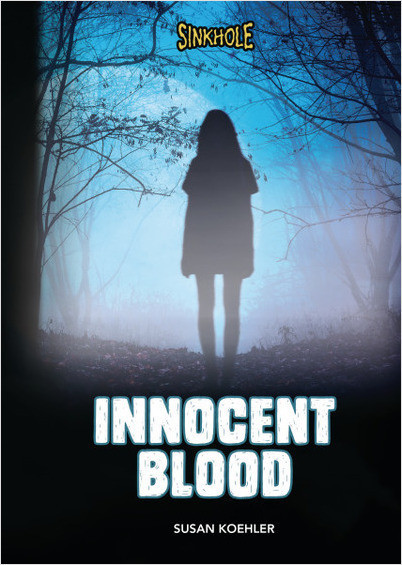
Rosa is a regular teenager at Foggy Creek high school. However, she is also someone with a special connection to the spiritual world and major events that stir up the town. The text starts with Rosa's dad missing and her mother working two jobs to keep the family functioning. Rosa has a crush on schoolmate and football star Kyle Barron. Her mother, Marisol, permits Rosa to attend the football game and then Rosa sneaks out with her best friend Manny to go see Kyle at the after-party. Within a few hours, Rosa's life becomes the subject of a spiral of events- from strange visions in her dream to a viral internet post with fellow teens calling her a witch and someone who people should watch out for. This fast-paced, 15-chapter book is part of a series titled Sinkhole. Each book centers around the unique experiences of teenagers within the community of Foggy Creek and a sinkhole that suddenly appears. Innocent Blood is a great text for older readers who need high-interest but lower reading level material to engage them in the reading process. These readers will be able to easily make connections to characters and see themselves as a part of the events of the missing people. They will also begin to question the events and draw their own conclusions about why these people are missing and how their being missing relates to Bucky Leblanc. Last, readers will benefit from the author's representation of the challenges of a single-parent family with a unique characteristic of a "missing" dad.
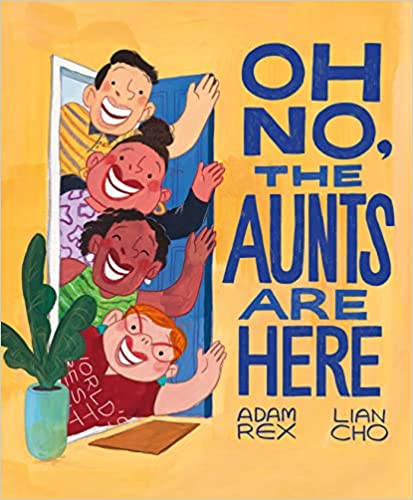
Rex and Cho celebrate the joyful—and sometimes annoying—arrival of family. A little girl's life is upended by the arrival of four exuberant aunts. The aunts are loud and colorful and seem to take over the little girl's life, specifically her bedroom, which is now filled with aunts and smells like lotion. They even invade her dreams, where the aunts are everywhere. But when the dream takes a scary turn, it's her aunts who save the day, squirting a wolf with hand sanitizer and then enveloping her in a warm hug. Before long, it's time for them to go, and then the house is quiet again, at least until the uncles arrive. Rex's hilarious story captures the anguish experienced by a child whose normal schedule is upset. In Chen's watercolor & gouache illustrations, the aunts dominate the page, with large word bubbles suggesting their loud and enthusiastic responses. The girl and her family, on the other hand, are often crowded on the sides of the pictures and have expressions of frustration and exasperation. Children will laugh out loud at the aunts' absurd and exaggerated actions during their extended "staycation" with a less-than-willing family.
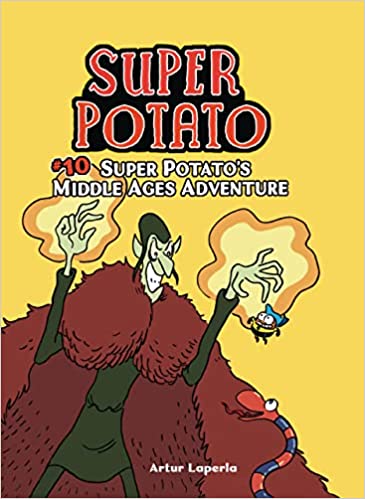
Super Potato is a diminutive superhero whose origins are quite unique. When a scientific experiment went awry, an innocent potato was transformed into a sentient being with an ability to fly and amazing strength. In this book, the tenth in the "Super Potato "series, readers will once again encounter this small-scale yet powerful superhero. Presented in a graphic novel format, this story addresses time travel and all the perils wrapped up in such endeavors. Super Potato awakens one day to find that his super strength feels not-so-super. When he consults with the scientists who helped create him, he is informed that super strength was a temporary gift and one that had a shelf life. Now, with diminished strength, Super Potato is sent on a dangerous time travel assignment. Apparently, one of the team members at the scientific institute that created Super Potato has been trapped in time. In order to rescue the time-traveling professor, Super Potato must journey back to the Middle Ages and retrieve the lost academic. But when Super Potato arrives in the Middle Ages, he finds nothing that he expected. There are no castles, knights, or damsels in distress. Instead, Super Potato finds a seemingly endless swamp full of mud, biting insects, and despair. In his journeys, Super Potato encounters a talking snake who, in reality, is a bewitched knight. The snake tells Super Potato he once was Maximilian the Great, a powerful knight who loyally served his king. Unfortunately, under the king's orders, Maximilian fought against a terrible monster that transformed him into a snake. Now, only one magician in the transformed world can change Maximilian back into his original form and restore the world to what it once was. Super Potato takes up this quest as well as searching for the lost professor. In the end, the fate of Maximilian and the retrieval of the time-traveling professor are tied together. En route to the climax of this entertaining and tongue-in-cheek graphic novel, Super Potato encounters odd creatures, powerful enemies, and a somehow familiar mage who has the key to solving the problems created by the monster who transformed Maximilian. This journey will entertain and amuse readers interested in the graphic novel genre. Written with a humorous bent, this chapter in the Super Potato saga will entertain readers and leave them wanting to know more about Super Potato, a very unlikely hero.
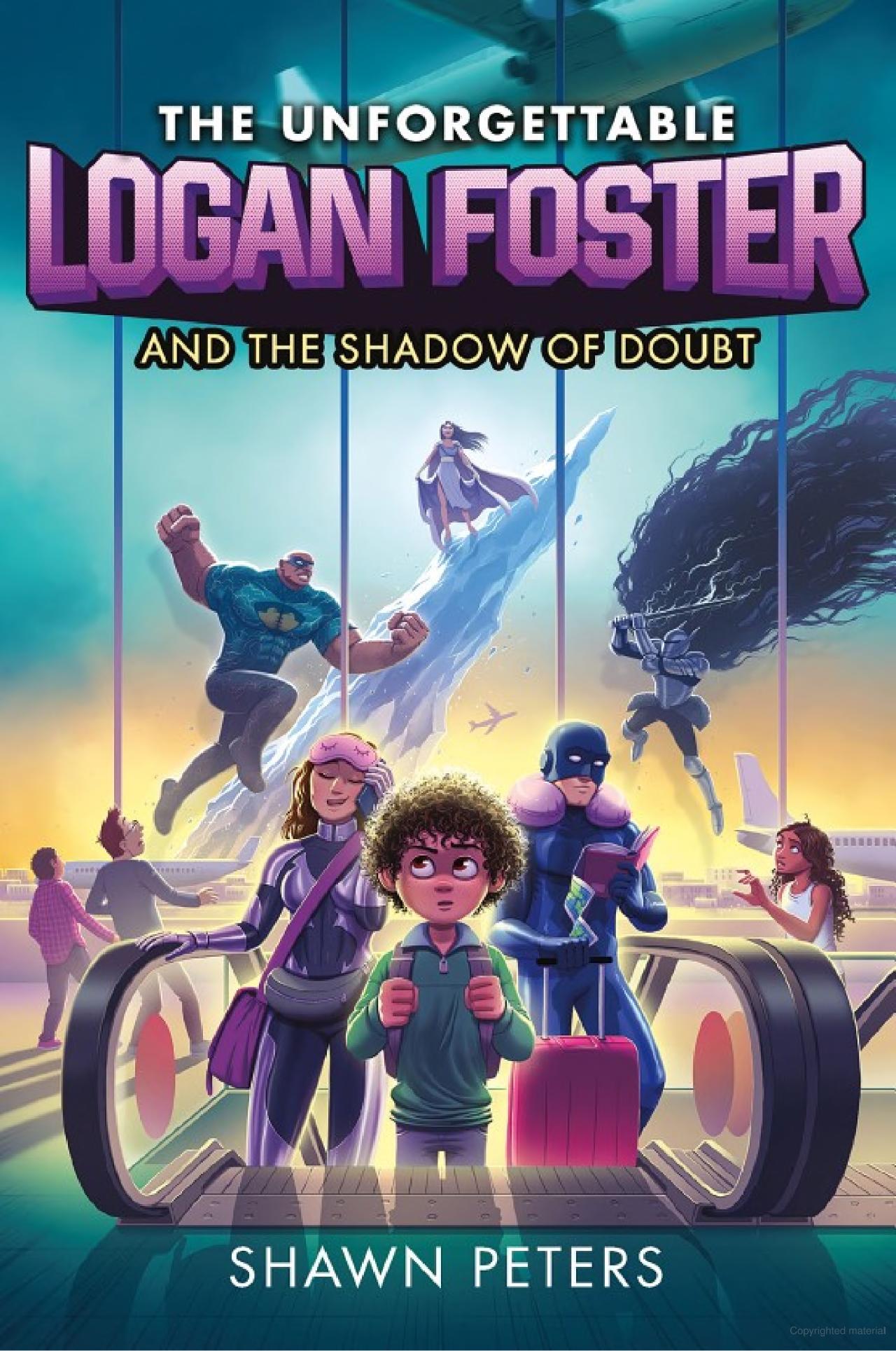
The indomitable Logan Foster is back in this much-anticipated sequel. Logan's story continues with his foster parents, Gil and Margie, his friend Elena, and newcomer Connie. Logan's life has completely changed after using his uncanny mind to defeat the supervillain Necros. As more superheroes go missing, his family becomes more and more concerned for their welfare. Logan also begins to suspect that MASC isn't telling him the whole truth. Why does he hate airports so much? Why did Necros call him "my child"? Could SHE be his mother? Using his eidetic memory, his courage, and all of his strength, Logan helps to reveal the truth of his past. Readers will love embarking on another wild journey with Logan Foster. Logan is a unique character, and his personality is one that kids will find engaging. He is unapologetically honest, and this folds into his integrity. The plot unwinds well and is full of epic superhero and supervillain battles. Gil's humor and puns are groan-worthy bits of humor. One should note that while no foul language is used within the book, allusions occur multiple times within the text. As Logan has matured, so has some of the language. This book will capture middle grade and young middle school readers who are ready for plenty of action!
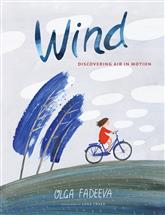
Young readers will learn all about wind and its effects on the planet, its history, and the daily lives of its inhabitants in this informative picture book. Organized in a question-answer format, the book tackles a variety of aspects of wind, such as how it is measured, different types of wind, and how it helps plants and animals. Several questions focus on wind in history by looking at how humans have harnessed the wind to sail ships or create energy. Fadeeva points out that the invention of a triangular sail, known as a lateen sail, "revolutionized" sea travel, paving the way for the age of exploration. Too long for a single read-aloud session, the short passages will encourage browsing and pleasure reading, although the lack of a table of contents or index may make it less suited for research. The bold acrylic illustrations show blustery days, wind-swept plains, and brightly colored kites, with collage elements adding texture and depth. Lighthearted moments capture the wind's capriciousness, such as a page on wind in outer space, where scattered words explain that "it appears there was some other text here, but Neptune's wind scattered all the words…" This would make an excellent companion book to picture books featuring the wind, such as Jerry Pinkney's Miranda and Brother Wind or Hear the Wind Blow by Doe Boyle.
Author Erin Soderberg and The Great Peach Experiment 3: Frozen Peaches
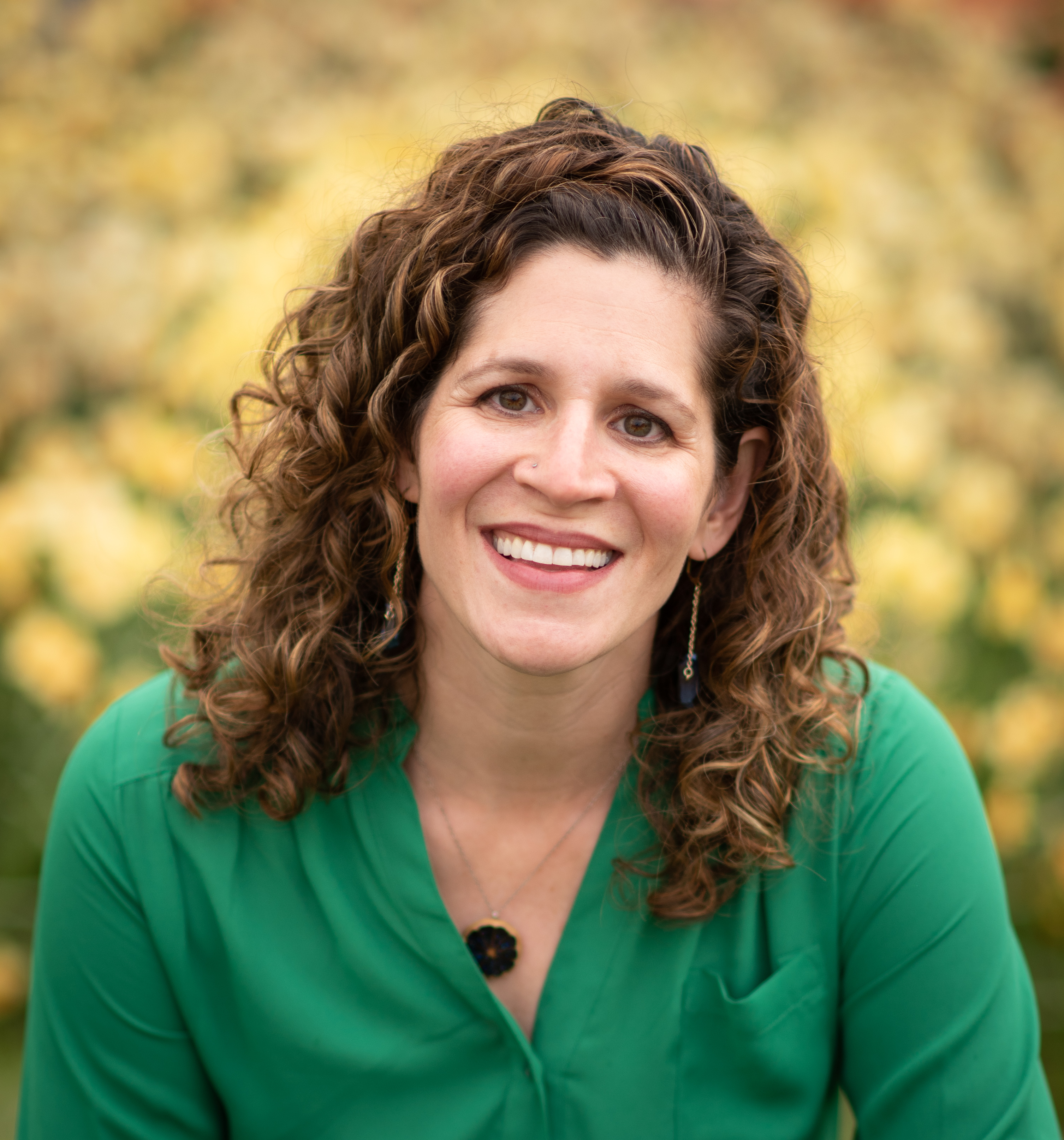
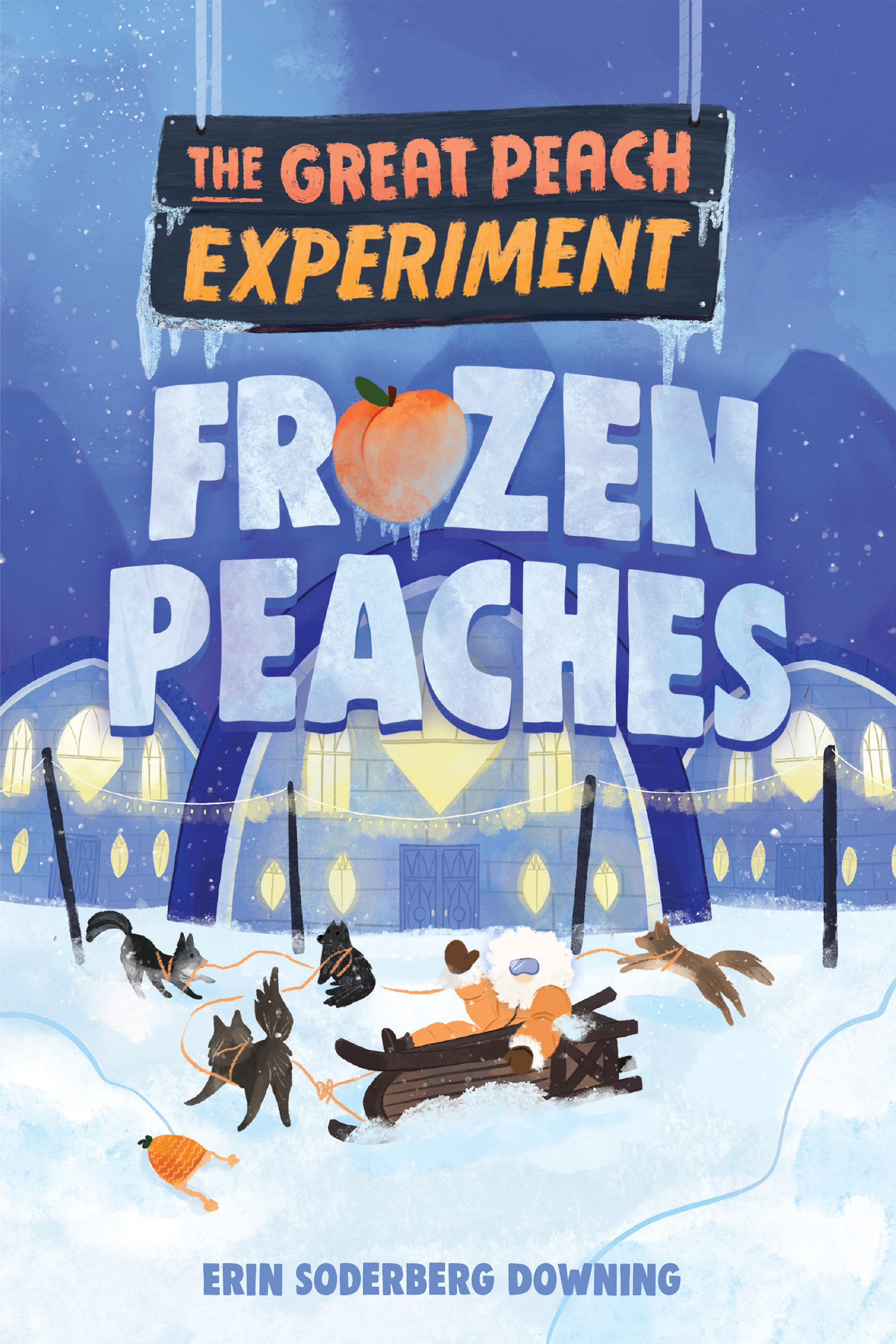
Erin Soderberg’s newest The Great Peach Experiment series book just came out this month and we caught up with her to learn a little more about the Peach family’s latest adventure.
Hi Erin! Thanks so much for discussing your newest book with us. We are all excited to hear about the Peach family's latest adventure.
Thanks so much for having me!
Where do we see the family/story pick up in The Great Peach Experiment 3: Frozen Peaches?
Book 3 opens with Freddy Peach's announcement that he's been testing the family's recent lucky streak by entering in a series of sweepstakes, and he's actually won a few! One prize is a year's worth of free yogurt, and one has earned them…a free trip to the Icehotel in Sweden, where the Peaches will get to learn about running a hotel from the best of the best!
What inspired you to choose this chilly location for the third book in the series?
Right after my husband and I got married, we moved to Sweden for nine wonderful months and made some great friends and memories. While we were living there, we got a chance to spend a night way up north at the Icehotel, and I've been saving this truly special setting for a truly special book ever since. Before I'd even finished writing the first book in the Great Peach Experiment series, I knew this was the perfect family to send on an adventure to this frozen wonderland!
Which character can readers expect to see the most growth in this book?
My goal with this series is to give each character a meaningful personal arc in each art, in addition to the larger plot arc for the family as a whole. It's a challenge, to be sure, but I work hard to give each kid a strong plotline to "earn their keep" in the story, so to speak. So it's hard for me to identify the kid who grows the most, but I'd say Herb has the most going on in this book—since he becomes a master dogsledder while they're at the Icehotel! He ends up being a hero in many ways.
What themes can book clubs and class discussions delve into in Frozen Peaches?
There could be some wonderful discussions around using setting to influence story elements and plot lines and the importance of family connections and building trust. It would also be fun for classes and book groups to do some research on how the real Icehotel gets built and designed each year!
Was there a family-themed book series you loved reading as a child? And what drew you to the series?
My favorite series growing up were the Ramona series and the Baby-sitter's Club series. The humor in both is what drew me in, but the powerful connections and relationships between siblings and friends are what kept me reading both of them. My more recent favorite series include the Penderwicks (which I read aloud to my kids when they were in elementary school) and the Vanderbeekers series—I love both of those series for the very same reasons…the humor and the heart and the powerful connections between characters!
We know you as an author of books for all ages. What draws you to writing middle grade chapter books?
These are the types of stories I most enjoy reading, which makes them my favorite thing to write, as well. I became a lifelong reader by delving into series as a kid, and I hope my series can have that same impact on kids reading my stories today!
To wrap up our interview, we want to include the entire Great Peach Experiment series and yourself: If you had a food truck (The Great Peach Experiment 1: When Life Gives You Lemons, Make Peach Pie), what food would you serve?
Ice cream! Then I wouldn't have to cook anything at all (I'm a terrible cook, though I do make a pretty tasty cookie!)
If you owned a Bed & Breakfast (The Great Peach Experiment 2: The Peach Pit), what would you name it?
Books & Breakfast, maybe? There would be a giant library with cozy chairs, and I'd have a dog and gnome decorating theme running through the guest rooms since those are two of my favorite "knick-knack" themes—both dogs and gnomes make me giggle and smile and feel at home.
Where would you want the trip to be if you won a family trip (The Great Peach Experiment 3: Frozen Peaches)?
I'd love to visit the Icehotel with my family someday, so maybe there? It's a truly one-of-a-kind place that you can't quite imagine until you step inside yourself (but hopefully, I've made it more accessible to kids everywhere by writing lots of the fun details about this magical place into my story!)!
To learn more about Erin and all of her books, visit www.erinsoderberg.com. The Great Peach Experiment 3: Frozen Peaches is published by Pixel+Ink and is available now. Pixel+Ink publishes series for children ages 3-13, and its latest catalog is available at https://holidayhouse.com/site/pixel-ink/.
Submitted By Molly Callender, Children's Literature reviewer and gifted education educator
Geography is one of the most important and interesting subjects to teach elementary students, but it is often neglected. The following are a variety of books with activities to engage students in learning geography and in improving reasoning skills.

-
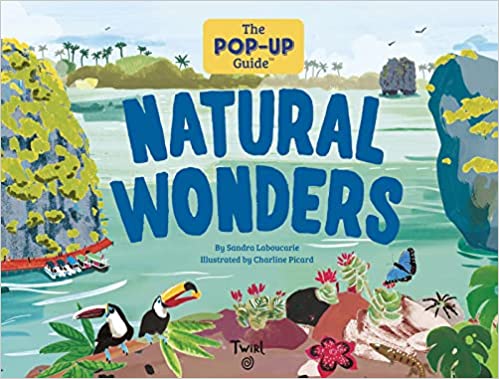
-
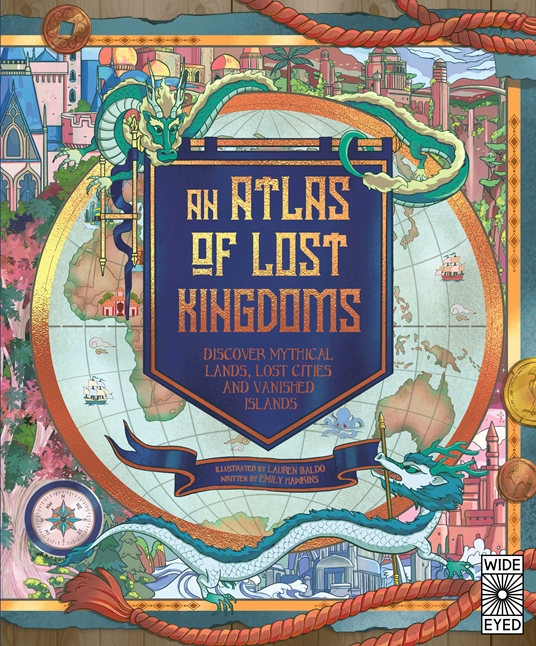
Materials:
· Amazing Landmarks: Discover the Hidden Stories Behind 10 Iconic Structures by Rekha S. Rajan
· The Pop-Up Guide: Natural Wonders by Sandra Laboucarie
· An Atlas of Lost Kingdoms: Discover Mythical Lands, Lost Cities and Vanished Islands by Emily Hawkins
· Student technology devices
· PowerPoint or other presentation software
· Writing materials for students
Activity: In a PowerPoint (or other presentation program), the teacher will present a photo (and/or) hints from a location in Amazing Landmarks or The Pop-Up Guide: Natural Wonders. Individually, students write observations and wonderings from the picture. Students must provide reasoning for their guesses based on their observations. Directly following this, teachers facilitate class discussion, with student conversation, having students share their thinking, and finally reveal the mystery location. The teacher can then provide more detailed information by reading the recommended text. This protocol can be used daily until determined complete by the teacher. The teacher may also adjust the complexity of the inquiry with photographs, information provided, precise terminology, and locations chosen.
Activity Example: The mystery location is The Grand Canyon. Teacher provides a photograph (depending on age, can make it more or less challenging) and the following clues:
· This location creates its own weather.
· No dinosaur bones have ever been found here, but scientists have found 11,000 year old fossils.
· It was most likely carved out by the Colorado River, but scientists are still speculating.
· This gorge is located on the continent of North America.
· This location is home to over 1700 kinds of plants.
Students jot down observations and wonderings so they are prepared for class discussion. Teacher facilitates and then reads the book to the class for more information.
Extension for Grades 3-5: Students make their own Where in the World PowerPoint slides. They can use the same books as inspiration or find other locations. The same inquiry protocol is used with the student's creation. They also may aid the teacher in facilitating discussion. This is a higher-level thinking activity, promoting critical thinking and inquiry for DOK levels.
Extension 2: Using the Atlas of Mythological Places, this same protocol could be used for mythical or vanished places around the world.
★ Children's Literature has recently updated its publisher review contacts. If you are a publisher who has been sending us your latest titles but hasn't received a copy of your completed reviews, we may not have received your latest review contact email. Please email Shelley Oakley at shelley.oakley@childrenslit.com with your most up-to-date contact information.
★ Children's Literature welcomes Flashlight Press to our list of publishers who receive our reviews. Flashlight publishes books that "explore and illuminate the touching and humorous moments of family situations and social interactions through captivating writing and outstanding illustrations." Visit www.flashlightpress.com for more information about their books and latest catalog.